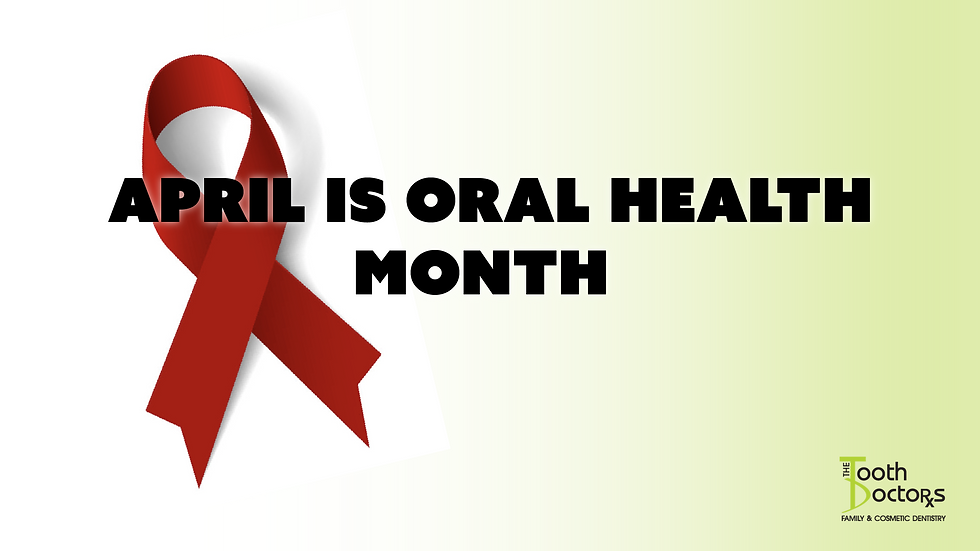Is Chewing Gum Helpful or Harmful to You?
- The Tooth Doctors

- Apr 8, 2015
- 2 min read
by Christine If the gum you are chewing contains sugar, it will most definitely increase the risk for tooth decay. Gum sweetened with sugar can create cavities in teeth as the sugar remains pressed against the teeth as you chew the gum.

Clinical studies have shown that if the gum you are chewing is sugarless gum, chewing for 20 minutes following meals can actually help prevent tooth decay. Dental plaque, a sticky deposit that forms on our teeth contains bacteria. These bacteria get the energy they need to live by consuming the sugars in the food you eat. When these bacteria consume sugars, they produce acids that eat away at the enamel on your teeth, resulting in cavities. Part of the job of saliva is to wash away these acids. Chewing gum is a good way to get your mouth watering and increase the flow of saliva in your mouth. The increase in saliva flow washes away food and debris, reduces the plaque acid, strengthens the teeth and reduces tooth decay. Most sugarless gums are sweetened with non-sugar sweeteners such as Aspartame, Maltitol, Sorbitol or Xylitol. Xylitol is considers to be one of the best as it is naturally occurring. It is said to be beneficial for dental health (among other beneficial health effects) and does not have the same negative side effects of artificial sweeteners. Although chewing sugarless gum can have benefits it is important to remember that chewing gum does not substitute brushing and flossing. Brushing twice a day and cleaning plaque from between your teeth with dental floss is still the recommendation to create and maintain a healthy and happy smile.



Comments